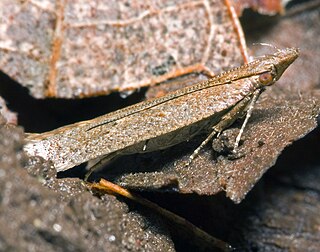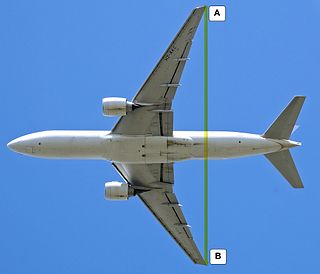| Mesophleps catericta | |
|---|---|
| Scientific classification | |
| Kingdom: | Animalia |
| Phylum: | Arthropoda |
| Class: | Insecta |
| Order: | Lepidoptera |
| Family: | Gelechiidae |
| Genus: | Mesophleps |
| Species: | M. catericta |
| Binomial name | |
| Mesophleps catericta (Meyrick, 1927) | |
| Synonyms | |
| |
Mesophleps catericta is a moth of the family Gelechiidae. It is found in Namibia and South Africa (Limpopo, Mpumalanga).

Moths comprise a group of insects related to butterflies, belonging to the order Lepidoptera. Most lepidopterans are moths, and there are thought to be approximately 160,000 species of moth, many of which have yet to be described. Most species of moth are nocturnal, but there are also crepuscular and diurnal species.

The Gelechiidae are a family of moths commonly referred to as twirler moths or gelechiid moths. They are the namesake family of the huge and little-studied superfamily Gelechioidea, and the family's taxonomy has been subject to considerable dispute. These are generally very small moths with narrow, fringed wings. The larvae of most species feed internally on various parts of their host plants, sometimes causing galls. Douglas-fir (Pseudotsuga) is a host plant common to many species of the family, particularly of the genus Chionodes, which as a result is more diverse in North America than usual for Gelechioidea.

Namibia, officially the Republic of Namibia, is a country in southern Africa. Its western border is the Atlantic Ocean; it shares land borders with Zambia and Angola to the north, Botswana to the east and South Africa to the south and east. Although it does not border Zimbabwe, less than 200 metres of the Zambezi River separates the two countries. Namibia gained independence from South Africa on 21 March 1990, following the Namibian War of Independence. Its capital and largest city is Windhoek, and it is a member state of the United Nations (UN), the Southern African Development Community (SADC), the African Union (AU), and the Commonwealth of Nations.
The wingspan is 16–17 mm. The forewings are greyish brown, sprinkled with greyish white scales. [1]

The wingspan of a bird or an airplane is the distance from one wingtip to the other wingtip. For example, the Boeing 777-200 has a wingspan of 60.93 metres, and a wandering albatross caught in 1965 had a wingspan of 3.63 metres, the official record for a living bird. The term wingspan, more technically extent, is also used for other winged animals such as pterosaurs, bats, insects, etc., and other fixed-wing aircraft such as ornithopters. In humans, the term wingspan also refers to the arm span, which is distance between the length from one end of an individual's arms to the other when raised parallel to the ground at shoulder height at a 90º angle. Former professional basketball player Manute Bol stands at 7 ft 7 in (2.31 m) and owns one of the largest wingspans at 8 ft 6 in (2.59 m).

